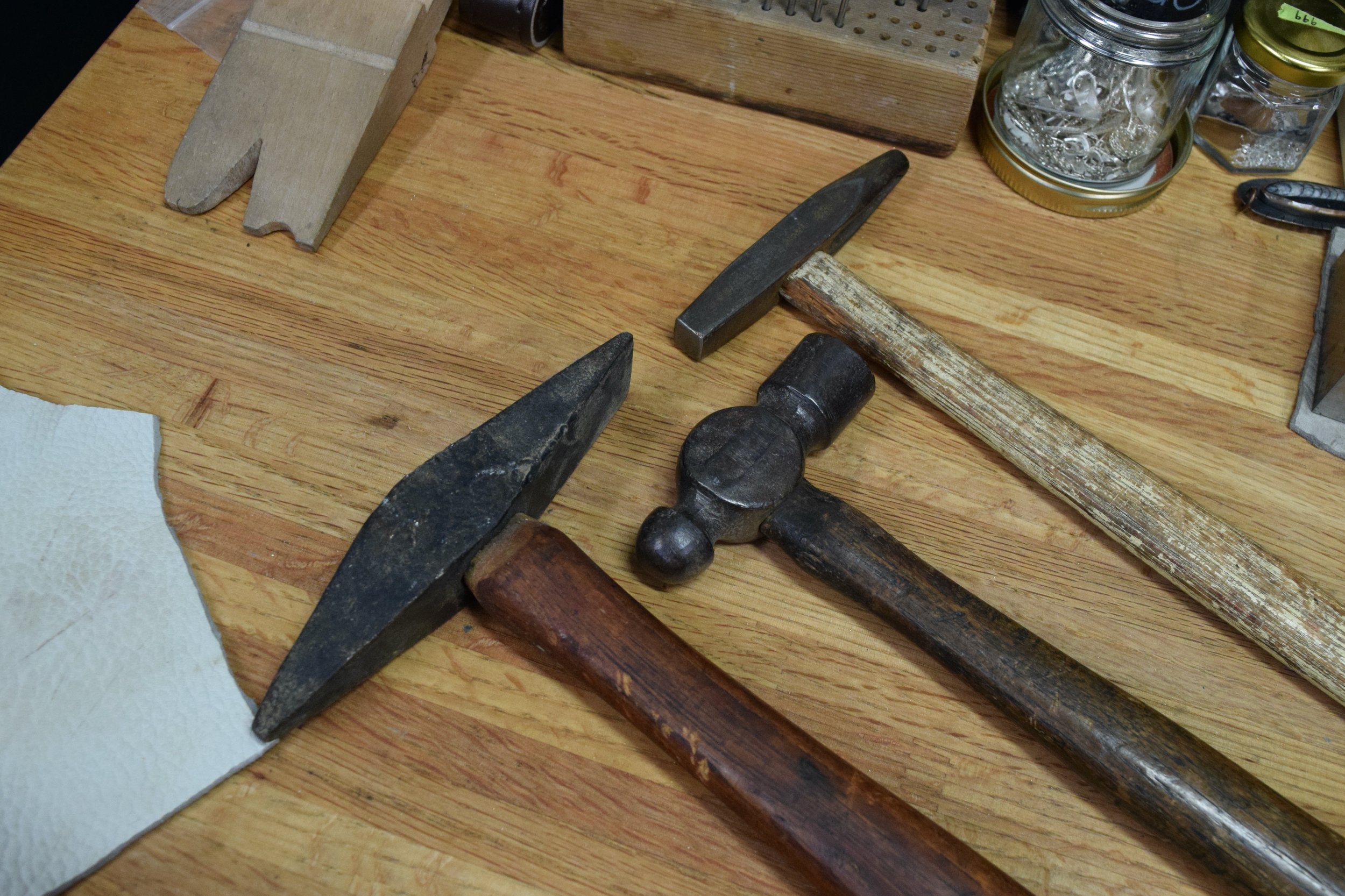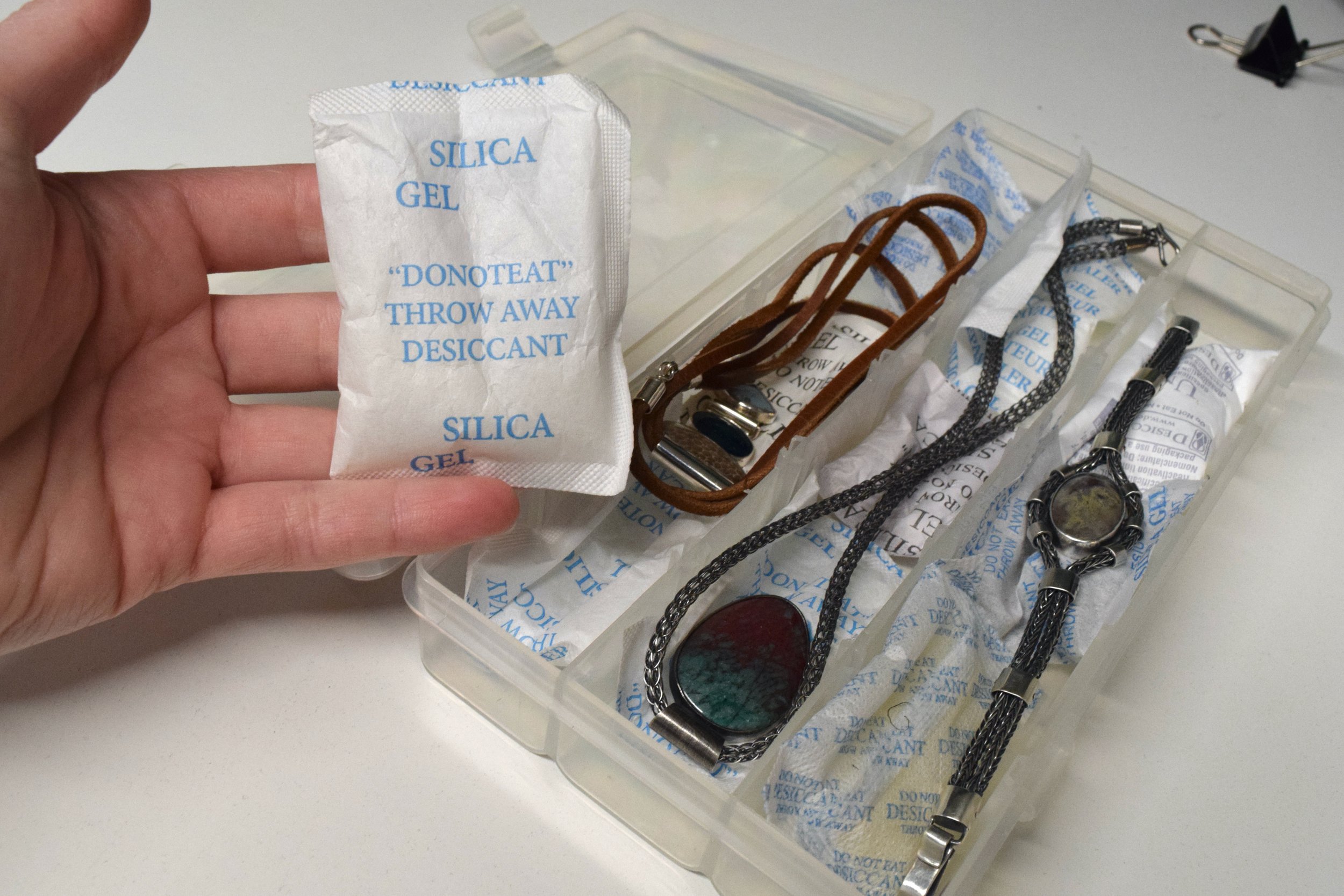Metalsmithing on a Budget
Metalsmithing is one of the most cost-prohibitive hobbies to start learning and naturally lends itself to becoming a side-business just to afford supplies. Starting your metalsmithing journey can be much more affordable if you are willing to use non-traditional methods for obtaining your starter tool set.
Garage sales, thrift stores, and even antique stores can be great places to find high quality steel and other tools for less. I have even seen nice antique watchmaker’s/jeweler’s benches for considerably less than you would pay for them new.
Important: Always do your due diligence to learn proper safety protocols when working with new tools and skills. Personal protection is imperative to your health in the studio in regard to dust, fumes, and other potential hazards. Proper vetting and cleaning of any second hand tool is equally important.
Here are some of my favorite alternative metalsmithing tool ideas:
Secondhand Hammers
Instead of cheap, plated hammers from supply stores, consider buying an old ball peen hammer with better steel. I have found that my antique hammers hold up considerably better than the beginner hammers I purchased years ago. Some of them have required light sanding or refinishing, but it has always been worth the effort.
Forming Stakes
Consider cutting a handle off of an old hammer to fashion a stake for your vise.
Another non-traditional forming stake I use frequently is a non-plated trailer hitch. Slanted sideways, I have a large, rounded area to work on, and the top provides a nice flat surface to work on when protected with a piece of leather.
Pickle Pots
If you’re soldering, you will need to set up a pickle pot to clean your metal. Luckily this can be as simple as cleaning and reusing a small crockpot from a second hand store.
Books
You might be surprised at how many metalsmithing books you can find at your local secondhand bookstore. I have found books on silversmithing, stone setting, and engraving just down the road at Half Price Books.
Scrap Copper
Copper is a great base metal alternative to sterling silver when you first learn to solder. If you know an electrician, consider asking for cutoffs of scrap wire that are too small to bother scrapping. You will need wire strippers to remove the outer jacketing.
Hammer Setting Tools
When I first learned about hammer setting, I really had no concept of what tools would be best for my bezels. Instead of buying punches specifically for this purpose (I’m not sure if these exist really), I took spent flex shaft/ Dremel bits and sanded the ends until they were smooth. I still use these for precision work along with non-marring acrylic punches for soft stones.
Silica Packets for Tarnish Control
This tip won’t save all that much money, but it is virtually free. Keep the silica packets you find in product boxes and use them to prevent tarnish when you store your jewelry. I’ve found that these work almost as well as anti tarnish tabs in a closed container.
Beaker Stands for Soldering
One of my favorite secondhand finds is this vintage beaker stand. It provides a much wider space for soldering under my heavy duty steel screen than the typical stands on the market. This is one of those tools you will need to thoroughly clean before reusing.
There are definitely tools you won’t want to skimp on like a good jeweler’s saw and quality blades. Remember that just because something can work, doesn’t mean you should. Use your best judgment, learn, and have fun!
Check out my posts on organization tips for small studios and building your own bench apron for even more ideas.
Did this post help you? Let me know in the comments!











